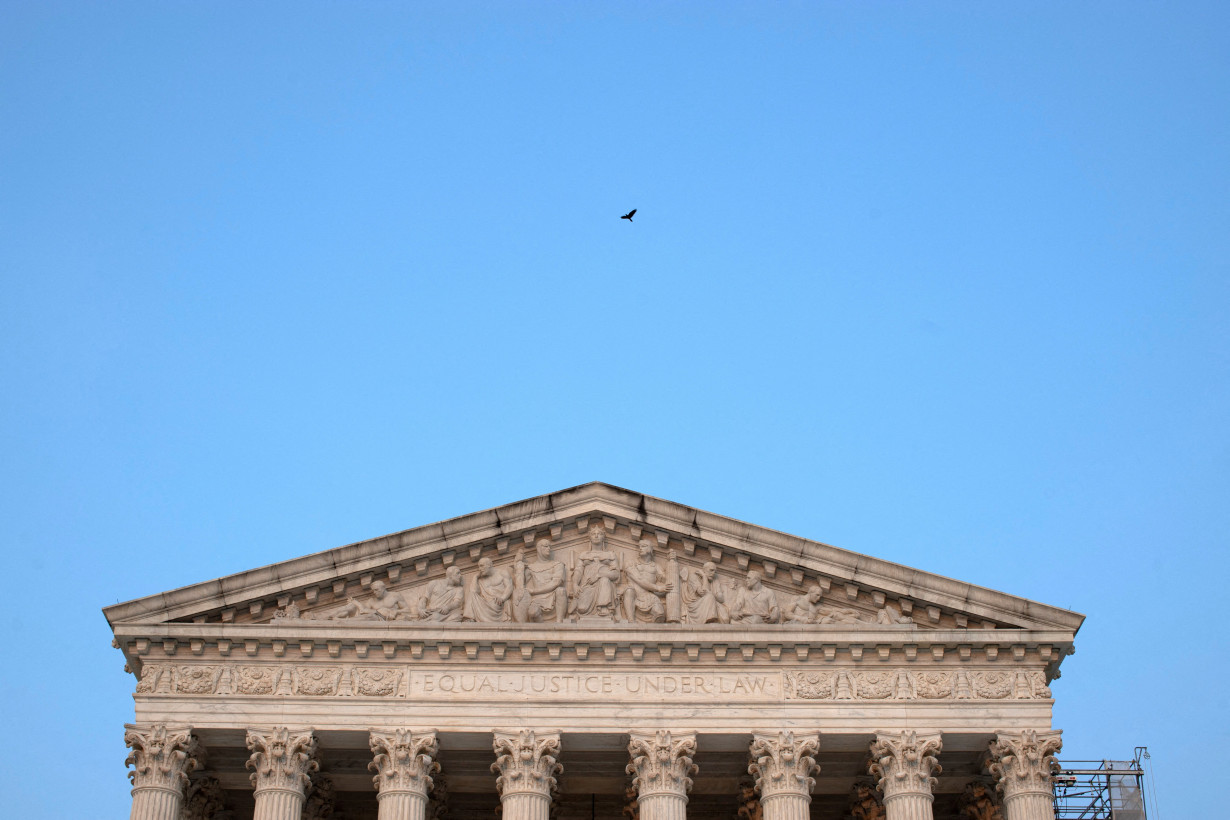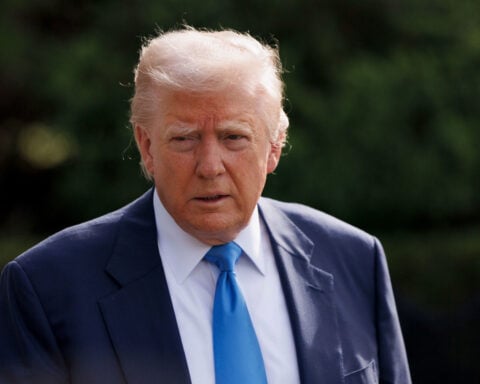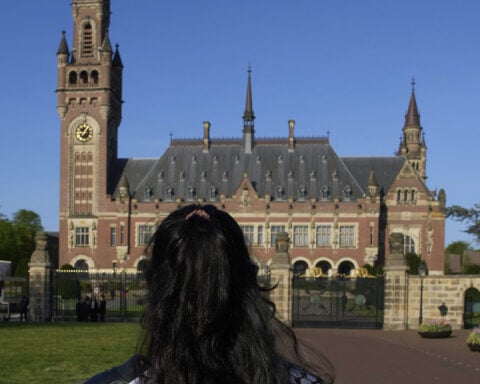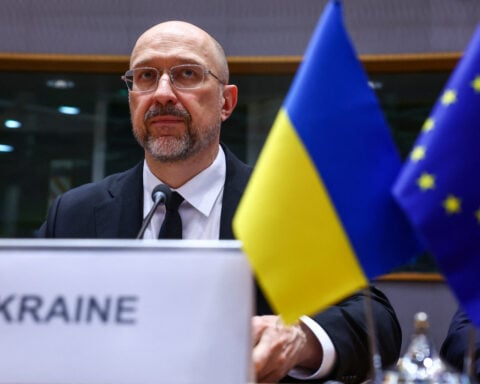(Reuters) -The U.S. Supreme Court's current term includes cases involving birthright citizenship, guns, gender-affirming medical care for transgender minors, online pornography, religious rights, preventive healthcare, Planned Parenthood funding, job discrimination, federal regulatory powers on nuclear waste storage and vape products, voting rights and more.
Here is a look at some of the cases already argued and decided and still to be decided by the justices.
BIRTHRIGHT CITIZENSHIP
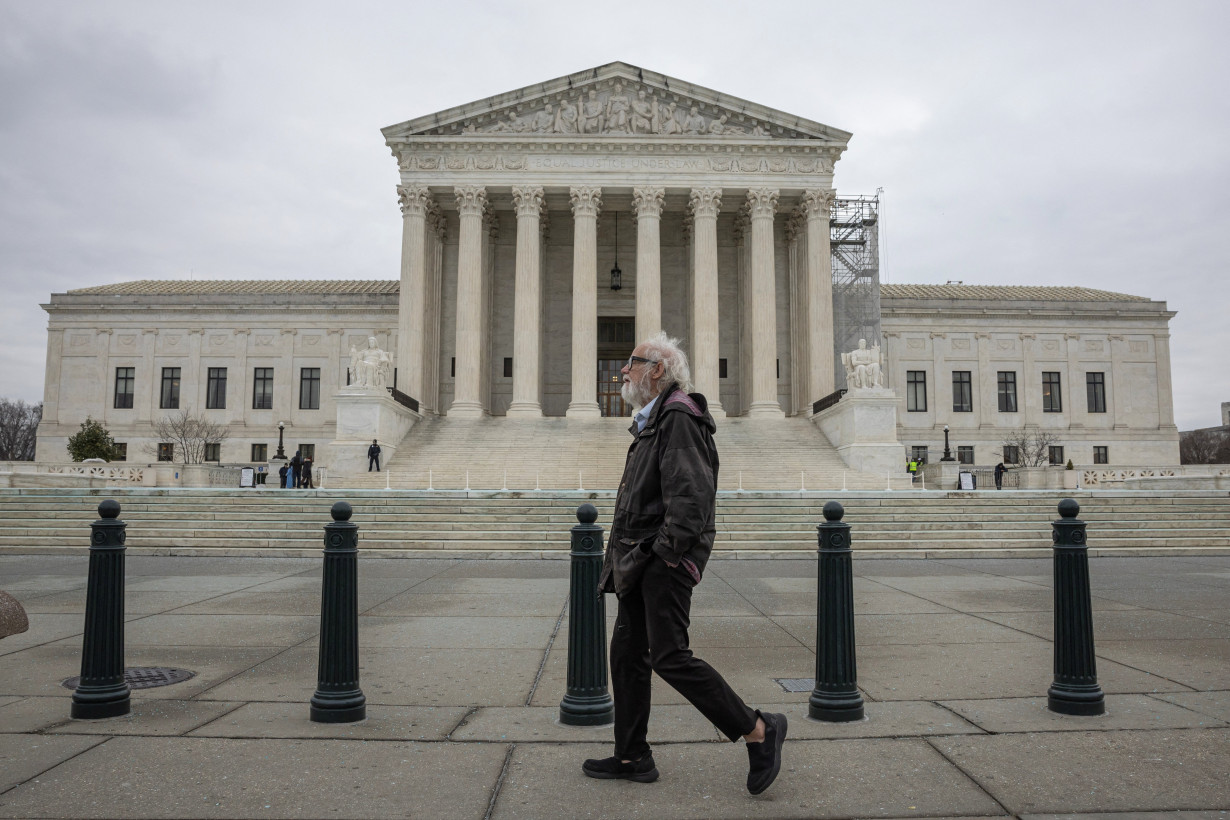
The court is set to hear arguments on May 15 over President Donald Trump's bid to broadly enforce his executive order to restrict automatic birthright citizenship, a key pillar of his hardline approach toward immigration. Injunctions issued by thee judges halted his order while the matter is litigated. Trump's order directed federal agencies to refuse to recognize the citizenship of children born in the United States who do not have at least one parent who is an American citizen or lawful permanent resident. Plaintiffs challenging Trump's directive have argued that it violates a right enshrined in the U.S. Constitution's 14th Amendment, which was ratified in 1868, that provides that anyone born in the United States is a citizen.
'GHOST GUNS'
The court on March 26 upheld a federal regulation targeting largely untraceable "ghost guns" imposed by Democratic former President Joe Biden's administration in a crackdown on firearms whose use has proliferated in crimes nationwide. The 7-2 ruling overturned a lower court's decision that the U.S. Bureau of Alcohol, Tobacco, Firearms and Explosives had exceeded its authority in issuing the 2022 rule targeting parts and kits for ghost guns. The court found that the regulation was consistent with a 1968 federal law called the Gun Control Act.
TRANSGENDER RIGHTS
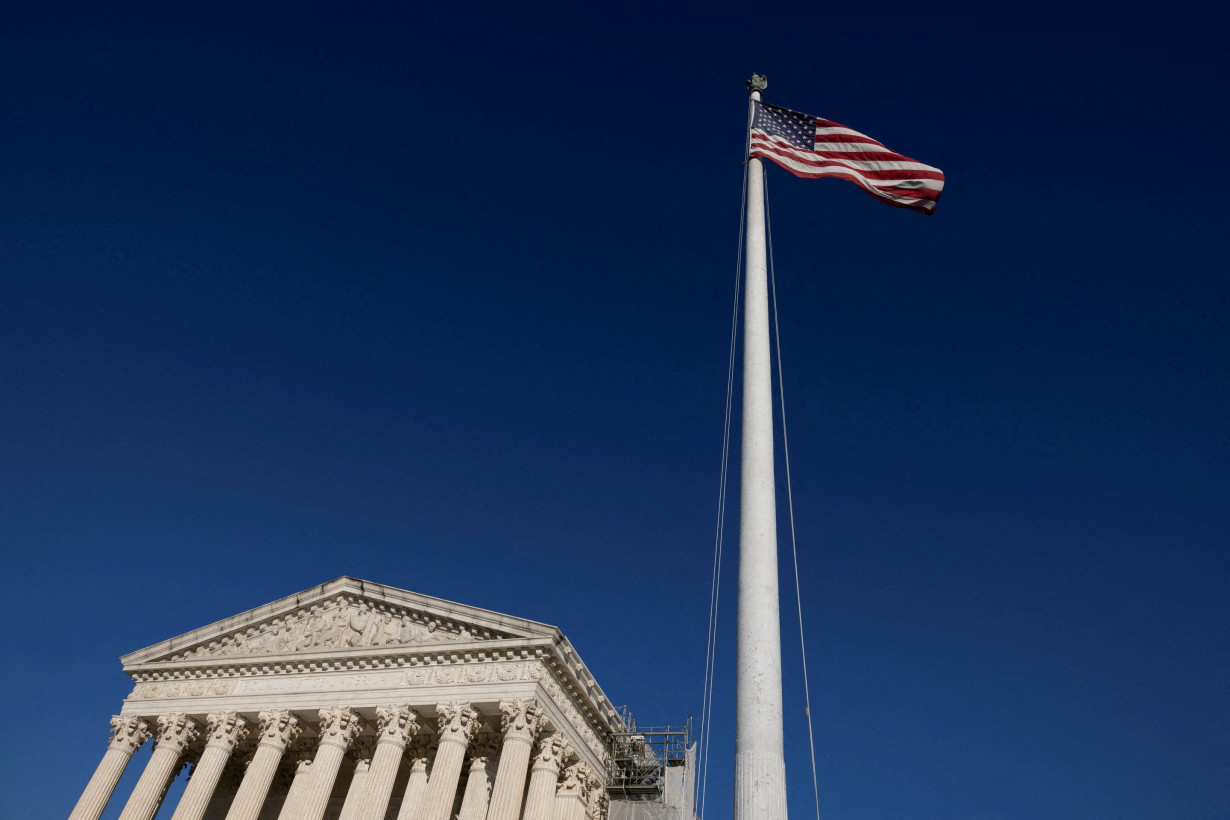
The court's conservative justices indicated their willingness to uphold a Republican-backed ban in Tennessee on gender-affirming medical care for transgender minors during arguments on December 4 in a major case that could affect various other state laws targeting transgender people. Biden's administration appealed a lower court's decision upholding Tennessee's ban on medical treatments including hormones and surgeries for minors experiencing gender dysphoria. That refers to the significant distress that can result from incongruity between a person's gender identity and the sex they were assigned at birth. A ruling is expected by the end of June.
MEXICO GUNS LAWSUIT
The justices signaled sympathy on March 4 toward a bid by two American gun companies to throw out the Mexican government's lawsuit accusing them of aiding illegal firearms trafficking to drug cartels and fueling gun violence in the southern neighbor of the United States. They heard arguments in an appeal by firearms maker Smith & Wesson and distributor Interstate Arms of a lower court's ruling allowing the lawsuit to proceed on the grounds that Mexico has plausibly alleged that the companies aided and abetted illegal gun sales, harming its government. A ruling is expected by the end of June.
ONLINE PORNOGRAPHY
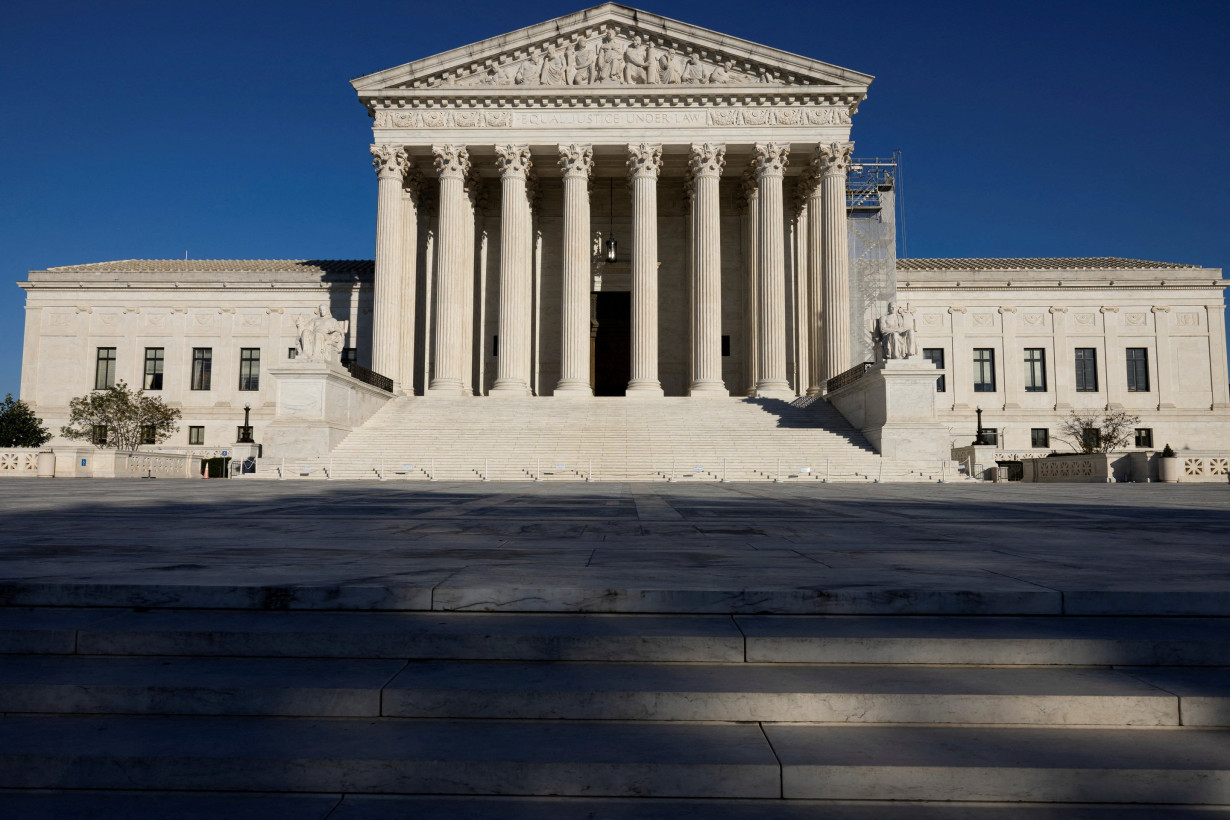
The justices heard arguments on January 15 over whether a Texas law that requires pornographic websites to verify the age of users in an effort to restrict access to minors violates First Amendment protections against government infringement of speech. The justices expressed worries over the availability of online pornography but also voiced concern over burdens imposed on adults to view constitutionally protected material. A trade group for the adult entertainment industry appealed a lower court's decision upholding the Republican-led state's age-verification mandate. A ruling is expected by the end of June.
WORKPLACE DISCRIMINATION
The court heard arguments on February 26 in a case in which a woman claimed she was denied a promotion and demoted by an Ohio state government agency because she is heterosexual. The justices appeared to lean toward making it easier for people from "majority backgrounds," such as white or straight people, to pursue workplace discrimination claims. Plaintiff Marlean Ames said she had a gay supervisor in 2019 when she was passed over for a promotion in favor of a gay woman and demoted in favor of a gay man - both of whom, she asserted, were less qualified than her. A ruling is expected by the end of June.
RELIGIOUS CHARTER SCHOOL
A bid led by two Catholic dioceses to establish in Oklahoma the nation's first taxpayer-funded religious charter school will go before the court in a case testing the separation of church and state. A lower court blocked the establishment of St. Isidore of Seville Catholic Virtual School, ruling that its funding arrangement violated the First Amendment limits on government endorsement of religion. Arguments are scheduled for April 30.
RELIGIOUS TAX EXEMPTION
The justices appeared sympathetic toward a bid by an arm of a Catholic diocese in Wisconsin for a religious exemption from the state's unemployment insurance tax in a key religious rights case. The court heard arguments on March 31 in an appeal by the Catholic Charities Bureau - a nonprofit corporation operating as the social ministry arm of the Catholic diocese in the city of Superior - and four entities that the bureau oversees of a lower court's decision rejecting their tax exemption bid. A ruling is expected by the end of June.
LGBT SCHOOL BOOKS
The court appeared inclined to rule in favor of Christian and Muslim parents in Maryland seeking to keep their elementary school children out of certain classes when storybooks with LGBT characters are read. The justices heard arguments on April 22 in an appeal by parents with children in public schools in Montgomery County after lower courts declined to order the local school district to let children opt out when these books are read. The parents contend that the school board's policy of prohibiting opt-outs violates the First Amendment protections for free exercise of religion. A ruling is expected by the end of June.
OBAMACARE PREVENTIVE CARE MANDATE
The court heard arguments on April 21 over the legality of a provision of the Obamacare law, formally called the Affordable Care Act, that helps ensure that health insurers cover preventive care such as cancer screenings at no cost to patients. A lower court determined that the U.S. Preventive Services Task Force, which under Obamacare has a major hand in choosing what services will be covered, is composed of members who were not validly appointed under the Constitution. Its 16 members are appointed by the U.S. secretary of health and human services without Senate confirmation. A ruling is expected by the end of June.
PLANNED PARENTHOOD FUNDING
The court heard arguments on April 2 in South Carolina's bid to cut off public funding to Planned Parenthood in a case that could bolster efforts by Republican-led states to deprive the reproductive healthcare and abortion provider of public money. The court's conservative justices appeared sympathetic to South Carolina's stance. A lower court barred the Republican-governed state from terminating funding to Planned Parenthood's organization's regional affiliate under the Medicaid health insurance program. A ruling is expected by the end of June.
U.S. TIKTOK BAN
The justices on January 17 upheld a law banning TikTok in the United States on national security grounds if its Chinese parent company ByteDance did not sell the short-video app by a deadline set by Congress. The justices ruled 9-0 that the law, passed by Congress last year and signed by Biden, did not violate the Constitution's First Amendment protection against government abridgment of free speech. The justices affirmed a lower court's decision that had upheld the measure. Republican President Donald Trump, Biden's successor, subsequently opted not to enforce the law and gave the parties time to try to reach a deal.
NUCLEAR WASTE STORAGE
The justices heard arguments on March 5 over whether the Nuclear Regulatory Commission has the authority to license certain nuclear waste storage facilities amid objections brought by the state of Texas as well as oil industry interests. The U.S. government and a company that was awarded a license by the NRC to operate a facility in western Texas appealed a lower court's ruling declaring the storage arrangement unlawful. The NRC is the federal agency regulating nuclear energy in the United States. A ruling is expected by the end of June.
FLAVORED VAPE PRODUCTS
The court on April 2 largely backed the U.S. Food and Drug Administration's refusal to let two e-cigarette companies sell flavored vape products that regulators consider a health risk to youths. The justices threw out a lower court's decision that the FDA had failed to follow proper legal procedures under a federal law called the Administrative Procedure Act when it rejected the applications by the companies, Triton Distribution and Vapetasia, to sell these nicotine-containing products.
EPA AUTHORITY
The court dealt a blow to the Environmental Protection Agency in a 5-4 ruling on March 4 involving a wastewater treatment facility owned by the city of San Francisco that could make it harder for regulators to police water pollution. It ruled that the EPA exceeded its authority under an anti-pollution law by including vague restrictions in a permit issued for the facility, which empties into the Pacific Ocean. The court has limited the EPA's reach in recent years as part of a series of rulings curbing the power federal regulatory agencies.
TAILPIPE EMISSIONS
The justices appeared sympathetic to a bid by fuel producers to challenge California's standards for vehicle emissions and electric cars under a federal air pollution law in a case involving the Democratic-governed state's power to fight greenhouse gases. They heard arguments on April 23 in an appeal by a Valero Energy subsidiary and fuel industry groups of a lower court's ruling that they lacked the required legal standing to challenge a 2022 U.S. Environmental Protection Agency decision to let California set its own regulations, separate from those of the federal government. A ruling is expected by the end of June.
TELECOMMUNICATIONS SERVICES FUND
The justices appeared sympathetic to the Federal Communications Commission's defense of the mechanism it uses to fund a multi-billion dollar effort to expand phone and broadband internet access to low-income and rural Americans and other beneficiaries. The court heard arguments on March 26 in an appeal by the FCC and a coalition of interest groups and telecommunications firms of a lower court's decision that found Congress violated the Constitution's vesting of legislative authority in Congress. A ruling is expected by the end of June.
LOUISIANA ELECTORAL MAP
The justices heard arguments on March 24 in a bid by Louisiana officials and civil rights groups to preserve an electoral map that raised the number of Black-majority congressional districts in the state in a legal challenge by a group of voters who called themselves "non-African American." A panel of three federal judges found that the map laying out Louisiana's six U.S. House of Representatives districts - with two Black-majority districts, up from one previously - likely violated the Constitution's promise of equal protection. A ruling is expected by the end of June.
DEATH PENALTY CASE
The court on February 25 threw out Oklahoma death row inmate Richard Glossip's conviction for a 1997 murder-for-hire plot and granted him a new trial. The justices in a 5-3 ruling concluded that prosecutors violated their constitutional duty to correct false testimony by their star witness. They reversed a lower court's decision that had upheld Glossip's conviction and had allowed his planned execution to move forward despite his claim that prosecutors wrongly withheld evidence that could help his defense.
(Compiled by Andrew Chung, John Kruzel, Nate Raymond, Blake Brittain and Daniel Wiessner; Editing by Will Dunham)

 Trump has begun another trade war. Here's a timeline of how we got here
Trump has begun another trade war. Here's a timeline of how we got here
 Canada's leader laments lost friendship with US in town that sheltered stranded Americans after 9/11
Canada's leader laments lost friendship with US in town that sheltered stranded Americans after 9/11
 Chinese EV giant BYD's fourth-quarter profit leaps 73%
Chinese EV giant BYD's fourth-quarter profit leaps 73%
 You're an American in another land? Prepare to talk about the why and how of Trump 2.0
You're an American in another land? Prepare to talk about the why and how of Trump 2.0
 Chalk talk: Star power, top teams and No. 5 seeds headline the women's March Madness Sweet 16
Chalk talk: Star power, top teams and No. 5 seeds headline the women's March Madness Sweet 16
 Purdue returns to Sweet 16 with 76-62 win over McNeese in March Madness
Purdue returns to Sweet 16 with 76-62 win over McNeese in March Madness
